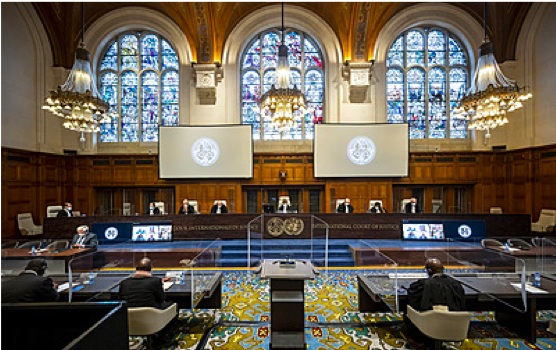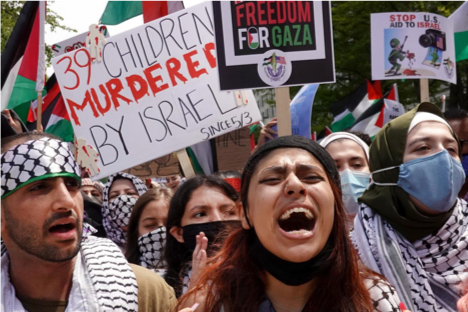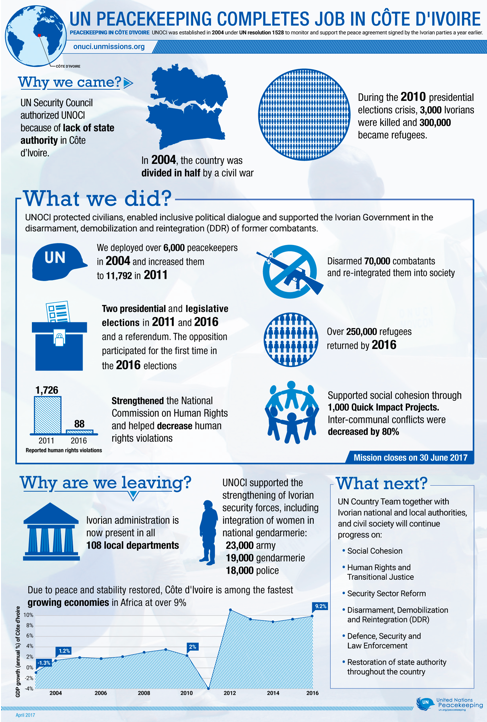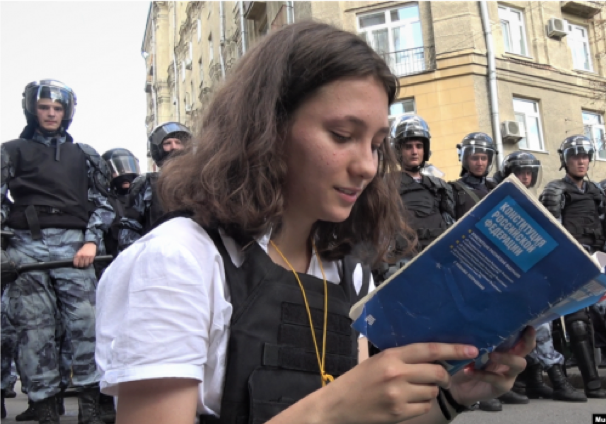How international human rights can stay relevant, and how the U.S. can lead this effort through the U.N.
By Simon A. Lee (S.A.L.), 2022

By Simon A. Lee (S.A.L.), 2022
What if I told you that in a post-Geneva Convention world, a global power rejected the legitimacy of a smaller, non-nuclear, sovereign state, and invaded said state with aspirations of a regime change that would benefit the global power’s goals and interests.1 I could be talking about the U.S. led Operation Just Cause in Panama or Operation Urgent Fury in Grenada. I could also Operations Enduring and Iraqi Freedom in Afghanistan and Iraq respectively. The one invasion that we are currently paying attention to and giving due criticism against is the one where Russian President Vladimir Putin sent neighboring troops into Ukraine with the stated purpose of to protect people who he states for eight years have been facing humiliation and genocide perpetrated by the Kyiv regime.2 In all four aforementioned military operations, human rights has been a mentioned factor, yet the underlying political and historical aspirations take the mantle on the decisions made.
For a country who claims we put human rights at the center of our foreign policy and stakes its reputation on the democratic values of defending freedom, upholding universal rights, respecting the rule of law, and treating every person with dignity, the U.S.’ track record regarding foreign policy has failed to live up to the high standards of the citizens of this nation and the even higher standards the next generation of citizens will have set.3 We continue to maintain a strong relationship with countries like Turkey, Israel, and India who have been continuously tagged as human rights abuser by international organizations like Human Rights Watch and Amnesty International. The U.S. can and must do better by using alliances, intergovernmental organizations, and education to their fullest potential to further its agenda which must be led by human rights.
In this post I will venture more into what the U.S. can do to reverse the decline of human rights through intergovernmental organizations like the United Nations and how the U.S. can bolster its credibility by outlining a new vision for U.S. global leadership which puts human rights first. Consider this a call to action for those in the U.S. who, like me, understand it is flawed and want to help fix those flaws. If people know more about human rights, how they’ve been routinely violated and why it's important to address those violations for our country and the global community, they can set higher standards for the leaders they elect which puts human rights first.
With the responsibilities of the United Nations stretching worldwide, cross-border, and multidimensional, and the U.S. being the global hegemon it is along with a founding member of the U.N., there was bound to be a struggle of influence along the way. The relations between the U.S. and the U.N. have not always been in an ideal setting to invoke change for the better and adhere to human rights concerns. Like other countries, U.S. activism has ebbed and flowed as its interests seek fit, most recently with the U.S.’ use of its veto and abstaining4 from votes in the Security Council when it regards issuing resolutions that condemn Israeli military action––one issue that often divides the U.S. from the other Permanent 5 [P5] members of the Security Council.5 6 This cannot stand. The strategic elements that make up an alliance must be led with human rights in mind. Where is the line drawn? How much human suffering must it take for an ally to hold another ally accountable?

On the judicial side of things with regard to the International Court of Justice [the judicial body of he U.N.], the relations between the U.S. and U.N. have been lackluster as well. One of the biggest cases in ICJ history was in 1986 when the ICJ ruled that the U.S. violated international law for supporting right-wing rebel groups in covert war efforts against the Nicaraguan government.7 What looked like a win for the system was quickly snuffed when the U.S. refused to adhere to its ruling which ordered the U.S. to pay war reparations.8 In fact, when the time came for the U.S. to submit their arguments in to the court and hear its final decision, the U.S. was no where to be found…they literally didn't even show up.9 This was a significant blow to both the credibility of the ICJ, and the image of the U.S. We blew a great chance to lead by example in a rapidly globalizing world.
When addressing conflicts around the world, a new benchmark for intervention and rebuke is needed. The absence of war can longer be the gold standard. It is not enough. We must include the successful prevention of human rights abuses and the prosecution of said abusers, in the same bracket as successful deterrence when shaping our global definition of success as it relates to conflict. The U.S. must lead in this effort both within the drafting of our national security policy, and in maintaining economic and security relations with other countries. This effort must remain consistent across the board. Although the U.S. has labeled the treatment of Uigher Muslims in China and Rohingya Muslims in Myanmar, Burma after months of debate and calculation, the U.S. has still failed to acknowledge the ongoing apartheid being committed by Israeli authorities against Palestinians.10

Even as non-governmental organizations like Human Rights Watch and Amnesty International sound the alarm by pointing out Israeli policies like massive seizures of Palestinian land and property, unlawful killings, forcible transfer, drastic movement restrictions, and the denial of nationality and citizenship to Palestinians (all components of a system which amounts to apartheid under international law), the U.S. continues to fund the very Israeli government and security forces behind these policies.11 If the U.S. is truly strongly committed to the development of a secure, free, democratic, and stable Palestinian society and governance, the U.S. must acknowledge the ongoing apartheid and act accordingly.12 If the stated integral ambitions of reaffirming the United States’ commitment to placing human rights at the center of our foreign policy are transparency and accountability, we must do everything in our power to ensure when we look inward at our own military actions, votings of intergovernmental organizations, and strategic alliances, we are held to the same level of transparency and accountability.13

It is not only the right thing to do, it is the strategically beneficial move. This utilitarian way of addressing conflict as it happens will eventually become the launchpad for all actions and decisions regarding U.S. foreign policy. Knowing human rights are interdependent and the deprivation of them can lead to a domino effect/successive tear in the fabric of our society, it’s the duty of every state who has committed to the U.N. charter to not only abide by it, but enforce it through economic and/or force as necessary.14 I do believe the U.N. and bodies within and alike are capable of and are obligated to carry out this plan of action. Some successful examples of this are the intervention of UN Peacekeeping Troops Liberia from 1989 through 2004, or in Côte d'Ivoire from 2004 through 2017.15 Or more recently when the ICJ delivered a judgement that ordered Uganda to pay the Democratic Republic of the Congo (DRC) $325 million in reparations related to the brutal conflict between the two nations from 1998 to 2003.16
As we know, capable does not always amount to willing, especially in the world theater. There’s a question that usually needs to be answered in situations as such especially for Americans: what’s it worth? Some answers are easier to see than others. Climate change is a human right issue that’s felt throughout the world. The affect climate change has on the right to life, health, sustenance, and housing makes it a human rights issue.17 National security is a bit more complex but it’s worth the attention of every American. Given that America’s prosperity and security depend on peaceful, self-reliant, U.S. economic and security partners, when insurrections, coups, and other conflicts arise globally, we see the impact here at home via sanctions that involve everyday items like oil and agriculture, sending our servicemen and women into harm’s way, etc.18 19 When the U.S. turns a blind eye to human rights issues attached to national security, that lack of attention emboldens the aggressor [whether it be a state actor or terrorist organization] and increases the likelihood of the prosperity and security of all states being subject to the same aggressions.
The responsibility to protect [R2P] is something that comes to mind as relevant here as well. This lasting and crucial political commitment that affirmed the responsibility of all Heads of State and Governments of the United Nations, to protect populations from genocide, war crimes, ethnic cleansing and crimes against humanity is one that we must abide by in the drafting of and while carrying out our national security strategy.20 The late Madeleine Albright published a report in 2013 on the relation between the U.S. and the R2P where she gave multiple recommendations the U.S. that included striving to improve the effectiveness of the ICC as a means of deterring and prosecuting war crimes, having Congress hold regular hearings on each administration’s atrocity prevention efforts while ensuring that the administration in power has plans in place for countries considered to have the greatest risk of mass atrocities in the future, etc.21 Ms. Albright understood that, “there will always be limits on what we can accomplish in world affairs, but that does not justify placing unnecessary constraints on our aspirations.”22
We must use this reasoning to keep human rights at the front of our focus on conflict around the world. The U.S. can work to bring international institutions and intergovernmental organizations into affective action to help advance the prosperity of developing and historically disadvantaged states through its alliances, intergovernmental organizations, and education.
Double Down on Values
The U.S. government and its population needs to affirm the importance of education, cultural competency, professionalism, comprehensive defense policies, and the rule of international law. We can see the need for this via the political climate in Russia. In response to the ongoing political turmoil of elections within and the invasion of Ukraine, polls taken during protests found that 59% of protesters were thirty-five years old or younger, and 23% were twenty-five or younger which confirmed that young Russians are breaking away from the Kremlin’s clasp and moving toward creating their own political identity due to the generational gap and the digital natives of this new generation.23
This next generation will be vital in the effort to lead the charge in the direction of a human rights centric world view. Now is the time to start stressing the importance of such mindset. Not only will the digital natives of this new generation not know a world without internet, but the multiculturalism and globalization of the times we are in today creates a bridge to cultural competency that we cannot take for granted. By educating the population about human rights and the global community we can bring states and intergovernmental organizations into affective action to help advance the prosperity of developing and historically disadvantaged states, thereby keeping international human rights relevant. If we are able to communicate the value of cultural competency and professionalism to the generation now and thereafter, we can effectively combat human rights abuses without disparity. If we can amplify the gravity of comprehensive defense policies like the NDAA/security agreements and adherence to treaties/ceasefires, we can equitably hold all parties involved accountable. If we are able to shift the level of reverence we have for the rule of international law, we can ensure our world and the civilizations within can have the utmost confidence in our institutions should human rights violations arise.

The U.S. is in no way shape or form exempt from a record of human rights abuses. U.S. military actions like the atomic bomb in Hiroshima, highly secretive counterterrorism raids and drone strikes in Somalia and Yemen, and large-scale air campaigns in Iraq, Syria, and Libya hav resulted in the death of civilians.24 The history of this country becoming the global hegemon it is today rests on the work of 400+ years of slavery, the expulsion of Native Americans in what’s known as the Trail of Tears, and a number of examples of systematic oppression in its history thereafter and felt within its population to this day. This country does not deserve a voice in human rights, yet it maintains a commitment to its citizens and to the world to do better. The U.S. must live up to their promise of hope, and we as its citizens/residents must keep the pressure its decision makers to do so.
1 Ford, Nicole M. (2022, March 3). Russia’s Ancestral Lands’ and Putin’s Justification to Invade Ukraine.
2 Treisman, R. (2022, March 1). Putin's claim of fighting against Ukraine 'neo-nazis' distorts history, scholars say.
3 U.S. Dept of State. (2020). 2020 country reports on Human Rights Practices
4 Bennis, P. (2014, May 7). U.S.-Un relations. Institute for Policy Studies.
5 Bennis, P. (2014, May 7). U.S.-Un relations. Institute for Policy Studies.
6 Lynch, C., Gramer, R., & Tamkin, E. (2016, December 23). U.S. abstains from U.N. vote condemning Israeli settlements.
7 Academy 4SC. (2021, March 18). International Court of Justice: World's highest court. Global Issues, International Relations.
8 Academy 4SC. (2021, March 18). International Court of Justice: World's highest court. Global Issues, International Relations.
9 Berlins, M. (2004, July 12). The ICJ is the UN's least effective body. The Guardian.
10 Human Rights Watch. (2-2021, April 27). Threshold Crossed.
11 Amnesty International. (2022, February 1). Israel’s Apartheid Against Palestinians
12 U.S. Department of State. (2021, June 11). U.S. Relations with Palestinian Territories.
13 U.S. Dept of State. (2020). 2020 country reports on Human Rights Practices
14 U.S. Dept of State. (2020). 2020 country reports on Human Rights Practices
15 Norwich University Online. (2020, September 30). Are united nations' peacekeepers missions effective?
16 Law and Crime Prevention (Ed.). (2022, February 9). Un's top court orders Uganda to pay $325 million to DR Congo
17 Amnesty International (Ed.). (2021, October 28). Climate change. What We Do.
18 Roehrich, A.-C., & Jones, C. (2022, March 9). A strong international affairs budget. what's it worth?
19 Sasha Maksymenko/CC. (2022, March 8). Russia's assault on Ukraine: What's at stake? Fact Sheet.
20 Šimonović, I. (2010). The Responsibility to Protect. UN Chronicle.
21 Albright, M. K., & Williamson, R. S. (2013). THE UNITED STATES AND R2P From Words to Action. United States Institute of Peace.
22 Albright, M. K., & Williamson, R. S. (2013). THE UNITED STATES AND R2P From Words to Action. United States Institute of Peace.
23 Khvostunova, O. (2020, February 27). Russian youth in the Moscow protests. Long Take.
24 The Center for Civilians in Conflict and the Columbia Law School Human Rights Institute (Ed.). (2020). US military investigations and civilian harm. Human Rights Institute.

Global Human Rights Hub Fellow 2021-2022